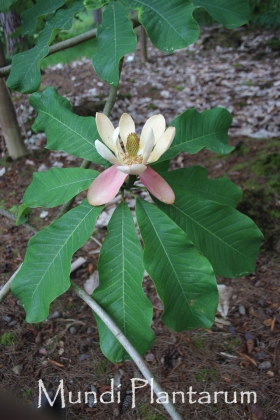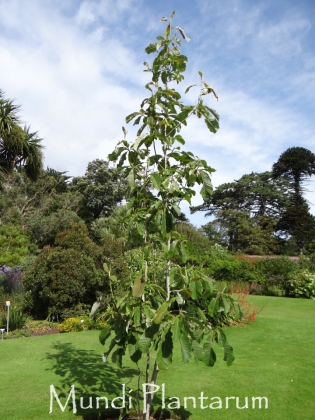Magnolia originaire de Chine aux très grandes feuilles caduques. L'écorce contient des agents antioxydants et anti inflammatoires. Très grande fleurs crème en avril-mai, parfumée. Hauteur de 10m.
Magnolia officinalis
Nom vernaculaire:
Magnolia médicinal
Famille:
Magnoliaceae
Classification
Arbres et arbustesClimat
Zone 6: de -23°C à -17°CCouleur de feuille
- Vert
Couleur de fleur
- Blanc
- Crème
Exposition
- Ensoleillé
- Mi-ombre
Taille
5 à 10m
5 à 10m
Intérêts remarquables
- Feuillage
- Fleur
- Parfum
Plante intéressante
- Au printemps
Type de sol
- Acide
Utilisation ailleurs
- Herboristerie
Utilisation au jardin
- Isolé
- Massif
- Parterre
DESCRIPTION GENERALE
- ORIGINE:
- CLIMAT:
- EXPOSITION :
- SOL:
- CROISSANCE :
- PATHOLOGIE:
- MULTIPLICATION:
- TAILLE:
- UTILISATION:
- MERITE:
- NOM VERNACULAIRE :
- SYNONYME :
PHYSIOLOGIE GENERALE
- DIMENSIONS:
- PORT:
- TRONC:
- ECORCE:
- BRANCHES :
- NOTE:
PHYSIOLOGIE DES FEUILLES
- FORME:
- COULEUR:
- BOURGEONS:
- STOMATES:
- NOTE:
PHYSIOLOGIE DES FLEURS
- EPOQUE:
- FORME:
- COULEUR:
- NOTE:
PHYSIOLOGIE DES FRUITS
- FORME:
- COULEUR:
- GRAINES :
- NOTE :

